- Home
- Suzanne Selfors
The Sweetest Spell Page 9
The Sweetest Spell Read online
Page 9
“Well …” Father strummed his fingers on the tabletop. “I wanted to keep Emmeline a secret until she could return home. But seeing as sending her home isn’t possible, I suppose there’s no harm in discussing the situation with our tax-collector. If we can get his approval, then we’ll have no worries about the law. If he agrees, then Emmeline can work as a milkmaid. Temporarily, of course.”
“A milkmaid?” Nan asked. “A dirt-scratcher as a milkmaid?”
“It’s the only job we have around here,” Father said.
Nan stomped out of the room. Emmeline and Mother shared a happy smile while Father refilled his pipe with the brown leaf that he bought from the spice merchant. And I sat back in my chair, once again staring at the girl who’d washed up on our riverbank. As I breathed deeply, my lungs pressing against the surgeon’s wrap that held my rib in place, I realized I was glad to have Emmeline stay a bit longer.
More than glad.
PART THREE
Milkmaid
Chapter Sixteen
Over the next few days my broken rib stopped aching, but I didn’t tell my parents. A healed rib meant I’d have to go back to work at our shop. An unhealed rib meant I was expected to stay home.
With Emmeline.
I felt a twinge of guilt, but only a twinge. Polly, our eldest milkmaid, was happy to take my place in the shop. She liked dealing with the customers because they always brought a hearty helping of town gossip. Mother didn’t seem to mind my absence. “The longer you stay away from the temptations of town, the better,” she’d said.
But the temptations of town came looking for me in the form of Bartholomew Raisin. It was early morning. Father and I were walking toward the barn when Bartholomew rode up on his horse. “Good day, Mister Oak,” he said. His stirrups were cinched high so his short legs could reach them. “Hello, Owen.”
I grunted a response. Father narrowed his eyes. “What do you want, Mister Raisin?”
Bartholomew slid off the horse, landing on wobbly legs. “Just passing by,” he said. “Out for a bit of fresh air and exercise.” He rubbed his fat hands together and peered up at me. “How’s that rib of yours? Is it almost healed? Never knew a rib could take so long to mend.”
“You’re wasting your time,” Father said. “Owen’s not going to fight in your circle. He’s promised his mother.”
“But Mister Oak,” Bartholomew said, his swollen fingers twitching. “Barefist fighting is what your son does. He’s the best I’ve ever seen. It’s in his blood.”
We headed toward the barn, Bartholomew scuttling alongside. “I know it’s in his blood,” Father said. “But you’ll have to find yourself another fighter. My boy’s done with it.”
I said nothing. I simply shrugged—a gesture of surrender that sent Bartholomew twitching at greater speed. I’d made the promise, but how long I could keep it was another matter. The fighting circle beckoned me the way trickling water beckons a thirsty animal.
“But the king has issued a new tax on barefist fighting. He’s going to take a 20 percent cut of my profits. I need Owen to—”
“Good day, Mister Raisin,” Father said, shutting the barn door in Bartholomew’s round face. Then he placed a hand on my shoulder, his expression serious. “Don’t tell your mother I said this, but you need to get yourself a wife. That will take your mind off fighting.” He walked down the steep steps that led into the underground cheese cellar.
Get myself a wife? I hesitated on the top step. I hated the cheese cellar. My chest always tightened down there, deep beneath the barn, with thoughts of the ceiling caving in. “I don’t want a wife,” I hollered down.
“You don’t know what you want,” Father hollered back. “Take my word for it. A good wife will tame that fighting urge. A wife’s what you need. But not Emmeline. She’s not the one for you.”
“Emmeline?” With a deep breath I forced myself down the stairs, my heart pounding with each step. The cellar’s cool air mixed with the sour scent of aging cheese. Slowly my eyes adjusted to the dim light. “Why would you bring up Emmeline?”
“I’ve seen the way you look at her. I know that look.”
“What look?”
He heaved a wheel of cheese from the shelf. “She’s a nice girl, but she’s not your kind. Chasing her would bring you both a world of unhappiness.” With a grunt he set the wheel on a table.
“I’m not chasing her,” I said.
“We don’t have permission from the tax-collector yet, so don’t go getting your hopes set on Emmeline staying. As soon as he gets back from his visit to Londwin City, I’ll be discussing the situation with him. But I’m thinking, maybe it’s not such a good idea to have her stay. Not with you following her around.”
I held up my palms, defending myself from this crazy notion. “I’m not following her around. I don’t know where you got that idea.”
Father snickered. “I’ve got two eyes. That’s where I got that idea. So don’t you go getting her with child.”
“What?” I forgot all about the ceiling caving in. “That’s crazy.”
As Father wiped dust from the wheel of cheese, I leaned against the cellar wall. Eleven days had passed since that supper when Emmeline had joined us at the table, transformed. And for eleven days I’d conjured excuse after excuse to be near her. At first she’d kept to the house, her fiery hair always tucked into a bonnet. When she swept the floors, I moved furniture out of her way. While she dusted the shelves, I read to her. When she went outside for the first time to hang the laundry on the line, I lowered the cord so she could reach it without having to stand on a bucket.
“Owen Oak, you leave that girl alone,” Nan had scolded, shooing me away. “That rib of yours is never going to heal if you keep following her around.”
Even Nan had noticed. What was the matter with me? A knot formed in my stomach as I pushed the embarrassment away. I took a deep breath of the cellar’s cold air. “It’s not what you think,” I told my father. “She’s pretty. That’s all it is. I just like looking at her. Nothing more.”
“Well, that I do understand. A pretty girl is hard to ignore.” Father glanced over at me. “Look, son, your mother’s taken a liking to the girl. Ever since your sister’s passing, there’s been a terrible ache inside her. She’s giving all that unused love to Emmeline. But Emmeline will have to go back to her own people one day. Dirt-scratchers belong in the Flatlands.” He stabbed the wheel with a knife, then cut it in half. “It’s going to be difficult enough for your mother to let her go. I don’t need you getting attached too.”
“I’m not getting attached. I don’t even know what you mean by that.” I trudged up the stairs and out of the cellar.
So what if I helped Emmeline with the chores? Who else did she have to talk to? Why not me? I’m the one who found her. Well, the cow found her, but I carried her to safety. It was good manners to help her. That was all.
And there she was, standing inside the front door, a feather duster in her hand. She’d taken to wearing a blue milkmaid’s dress and white apron, on Mother’s orders. Better to wear a work dress while doing household chores than one of my sister’s fancy getups. “Hello, Owen,” she said as I walked into the house. “There’s something I wanted to ask you.”
“I don’t have time,” I grumbled, moving quickly past her, holding my breath so I wouldn’t smell the rose soap on her skin. Too much time spent with one girl was not good. If Father had gotten the wrong idea, then maybe Emmeline had gotten the wrong idea as well. And if Emmeline thought I had feelings for her, then I needed to put an end to that. I wasn’t going to follow in Barley’s footsteps—fall in love, get married, have babies, the whole nightmare. I’d admit that my rib was better and get back to work at the shop.
“Owen?” Emmeline called softly. I stopped but, rather than looking at her, looked down at my boots. “Would you take me to see the cow?”
“Huh? What cow?”
“The one who found me by the river. I want to thank her.”<
br />
I scratched the back of my neck. “Well …” I couldn’t help it. My gaze traveled up her skirt, up her bodice, and up her neck until it locked on to those green eyes that seemed to be made of dew-speckled moss. “Sure, I guess.”
Who was I kidding? I was lying to myself, just as I’d lied to Mother when I’d promised I’d never fight again. At night, alone in the bunkhouse, I could still feel Emmeline’s head against my shoulder. When I closed my eyes, I could still feel my arm around her tiny waist, holding her as the horse galloped across the pasture.
I was attached.
Chapter Seventeen
Emmeline wasn’t supposed to leave the house, so I waited until Father, Mother, and Polly drove into town to open the shop. And because no one outside my family, except the surgeon, knew about Emmeline, I waited until the milkmaids finished the morning milking and walked back to their homes for midday meal, their blue dresses disappearing around the fence. Only then, with the coast clear, did I lead Emmeline from the house, keeping the pace slow as we crossed the yard. I’d gotten used to the way she dipped to one side when she walked. Many times I’d wanted to ask about her foot, but I remembered the embarrassment in her eyes when I’d told her that I’d been the one who’d removed her river-soaked boots.
With the morning milking done, the cows were grazing in the nearby pasture. They raised their horned heads as we approached. Maybe they thought she was one of their regular milkmaids, seeing as she was dressed in a milkmaid’s dress. I had no idea which cow had found Emmeline. They all looked exactly alike. But Emmeline seemed to have her heart set on thanking the creature. “We don’t have cows like this in the Flatlands,” she told me as we stood at the pasture’s edge.
“How many cows did you have on your farm?”
“We never had cows. Only Milkman Boar had cows.” She frowned and I sensed she was thinking about her village. I’d tried to imagine what it would feel like to lose everything. I’d tried to picture Wander washing away in a flood. What would it be like to walk through empty streets? To look for buildings that no longer stood? To look for people who had simply vanished?
We stood in silence for a few moments. Then she closed her eyes briefly and shook her head, probably pushing the images away. “Where is she?” she asked. Midday sunlight spread across her cheeks as she looked into the field. “The cow who found me. Where is she?”
I was about to choose a random cow when one of the creatures began a slow mosey toward us. Emmeline smiled and held out her hand. The cow sniffed, then stuck out a grass-stained tongue and licked her hand. Emmeline pressed her forehead against its cheek. “Thank you,” she whispered. It mooed, as if answering.
“The cows really seem to like you,” I said.
“It’s always been that way.”
At Emmeline’s request, I showed her the rest of the farm. I didn’t mind that the going was slow. If it took twice as long to get from one end of the farm to the other end of the farm, that meant I had twice as long to look at her. Did all dirt-scratcher girls look like this? If so, the king should open the Flatlands and let them run free.
We ended the tour in the butter room. “These are full of fresh cream,” I said, pointing to two large barrels. “The milkmaids will churn the cream into butter this afternoon.”
“Butter?” Emmeline peered into one of the barrels. It had not escaped my attention that she loved the stuff. She smothered it on everything. But all that eating had done her good. The hollows beneath her eyes and at the base of her neck had filled in. And her wrists no longer looked like they might snap as easily as dried twigs.
“We never had butter at home. How do you make it? Will you show me?”
“I guess we could make a small batch,” I said, motioning her to sit on one of the stools. Then I poured cream into a churning bucket. “This is the paddle,” I told her, pressing it into the top of the bucket. I pulled another stool close, set the bucket at my feet, and began to turn the handle. “This moves the paddle from side to side and stirs the cream. You do this until it thickens.”
“Doesn’t your rib hurt when you do that?” she asked, pointing to my side.
I stopped churning. “Uh, it’s getting better.” As my hand slipped from the handle, it bumped into her hand. “Sorry,” I said, pulling away. Then I pushed the bucket closer to her. “Why don’t you give it a try?”
She turned the handle until she found a steady rhythm. She relaxed her shoulders, easing into the motion as if she’d been churning her whole life. “I’ll stay here and work long enough to repay your mother and father for the food and lodging. But I can never repay you.”
“Repay me?”
“You saved my life.”
“You’d have to churn that butter into gold if you want to repay me.” She stopped churning, her eyebrows arched with surprise. “I’m teasing,” I said with a gentle laugh. “Just teasing. You owe me nothing. I did what any man would have done if he’d found you on the riverbank.”
“That’s not true.” She looked away. “I know what most men would have done. They would have left me there to die. A Flatlander girl is less than an animal.”
I said nothing. I wanted to tell her it wasn’t true. But it was true.
She began turning the handle again. “I will repay you one day. I will.”
“Where will you go?” I asked. “When you leave here?”
“I want to find my father so I can bring him home. If there is no war then the king should let him go. How far away are the mineral fields?”
“Very far,” I said. “They lie on the northeastern corner of the kingdom.” Resting my forearms on my knees, I stared at the floor as I delivered the bad news. “Look, Emmeline, there are only three ways to get out of the king’s army. If a soldier is wounded, he’s sent home. If he comes from a rich family, he can buy his way out.”
“What is the third way?”
“Death.”
We sat in silence. The room seemed to darken with the mood. I tried to change the subject.
“We have this peddler who comes and visits. He said that you buy yourselves husbands in the Flatlands.”
“Aye. At the husband market,” Emmeline said. She must have noticed my pained grin because her cheeks flushed. “Don’t you have a husband market?” I shook my head. “Then how do you get a wife in the Wanderlands?”
“I don’t know,” I said with a shrug. “You meet someone and fall in love. Or your parents find someone for you. Are you going to buy a husband at this market when you go home?”
“No one would marry me,” she said quietly.
“What are you talking about?” I asked. “You must be one of the most popular girls in your village. Even with your …” I didn’t say it, but both our gazes darted to her right boot. “You’re beautiful,” I said softly. It had slipped out without my even thinking about it.
She stopped churning and looked at me, her eyes as round as the moon itself, as if I’d just told her a secret or had found something she’d lost. I wanted to kiss her. I wanted to pull the bonnet from her head and run my hand through her hair. I leaned forward. She held her breath, unblinking as I inched closer. Then someone cleared her throat.
Emmeline tightened her bonnet, hiding the edges of her hair. A girl stood in the doorway to the butter room. I jumped to my feet and stepped in front of Emmeline. This was not going to be good. “Hello, Fee,” I said.
Fee, a milkmaid who’d been at the Oak Dairy for three years, stood with her feet planted wide, her arms folded. She narrowed her eyes. Everyone knew she wanted to be the next Missus Oak. She’d told this to my family, to her family, and even to me. I’d never asked Fee to get married. I’d never even told her I loved her. She had no reason to glare at me like that.
But it was possible that all those hours spent kissing behind the toolshed had given her the wrong idea.
“Who’s that?” Fee asked, pushing her bonnet to the back of her neck, her corkscrew curls bouncing free.
“What are you do
ing here?” I asked. “You’re supposed to be at midday meal.”
“I came back early to see you.” She took a side step, trying to peer around me. I mirrored her side step, blocking her view of Emmeline. “How come no one told me we had a new milkmaid?”
“We don’t,” I said. Then I took Fee’s arm and led her away from the butter room and deep into the barn.
“Who is she?”
“She’s … she’s nobody. Why’d you come back to see me? What do you want?”
Fee slid from my grip, then wrapped her arms around my waist, pulling me close. “You want to go out to the shed?” A devilish smile spread across her round face.
Kissing Fee had been fun at first. She was warm and eager. I enjoyed and encouraged it, I won’t lie. But after a while it lost its charm and started to feel like all we were doing was pressing our lips together. I could have been kissing a fence post for all the passion I’d felt. This happened before Emmeline’s arrival, so it wasn’t on account of my head swimming with thoughts of another girl. I just didn’t feel anything for Fee. And I’d been avoiding her, unsure of what to say. But now I had to tell her. “I don’t think we should meet anymore,” I said quietly.
Fee pulled away. “Why?” Her gaze darted toward the butter room. “Because of her? Is she your new girl?”
“I don’t have a girl,” I said. “New or old. I don’t have one.”
“I thought I was your girl,” Fee snapped. Then her eyes misted and she sniffled.
“Fee, it’s never been like that.” I shrugged. “I’ve told you over and over, we’re not getting married.” She blinked watery eyes, sniffling again. What an idiot I’d been. She was a sweet girl who hadn’t paid any attention to my words, only to my actions. “I’m sorry. It’s over.” What else could be said?
A sudden burst of anger flashed in her eyes. “I despise you,” she hissed. Then she kicked me hard in the shin. Clutching the sides of her skirt, she ran from the barn. I called after her but she screamed at me to drop dead.

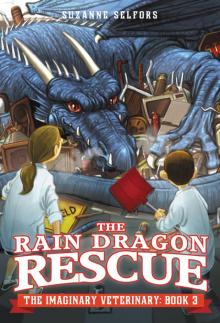 The Rain Dragon Rescue
The Rain Dragon Rescue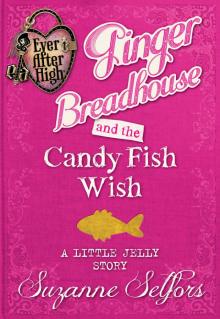 Ginger Breadhouse and the Candy Fish Wish
Ginger Breadhouse and the Candy Fish Wish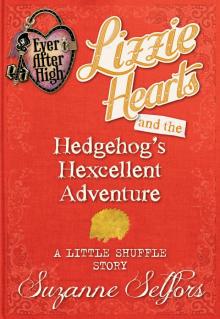 Ever After High: Lizzie Hearts and the Hedgehog’s Hexcellent Adventure: A Little Shuffle Story
Ever After High: Lizzie Hearts and the Hedgehog’s Hexcellent Adventure: A Little Shuffle Story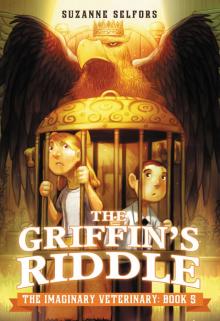 The Griffin's Riddle
The Griffin's Riddle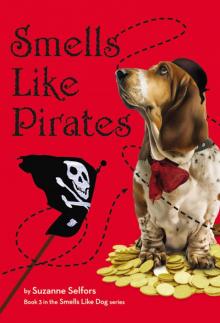 Smells Like Pirates
Smells Like Pirates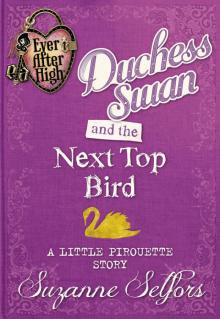 Duchess Swan and the Next Top Bird
Duchess Swan and the Next Top Bird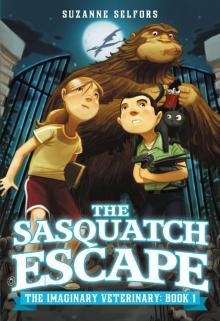 The Sasquatch Escape
The Sasquatch Escape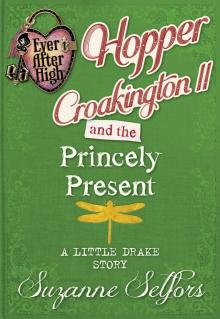 Hopper Croakington II and the Princely Present
Hopper Croakington II and the Princely Present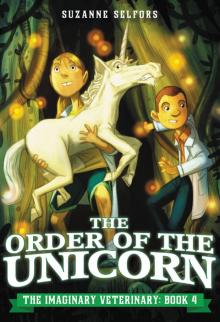 The Order of the Unicorn
The Order of the Unicorn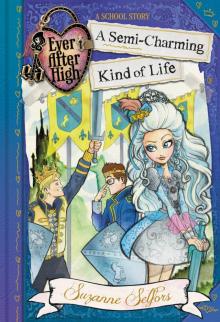 A Semi-Charming Kind of Life
A Semi-Charming Kind of Life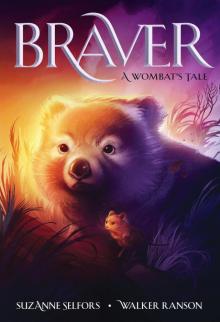 Braver
Braver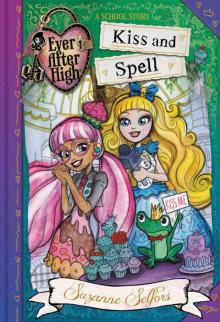 Kiss and Spell
Kiss and Spell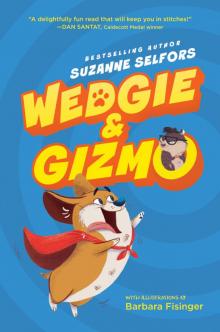 Wedgie & Gizmo
Wedgie & Gizmo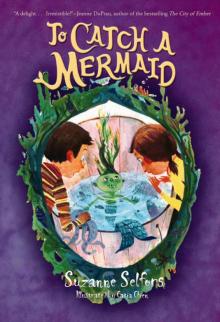 To Catch a Mermaid
To Catch a Mermaid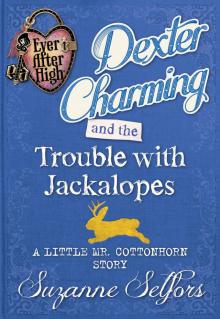 Dexter Charming and the Trouble with Jackalopes
Dexter Charming and the Trouble with Jackalopes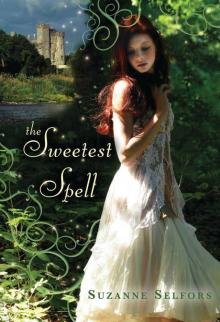 The Sweetest Spell
The Sweetest Spell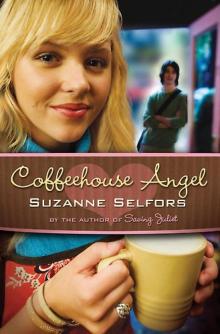 CoffeeHouse Angel
CoffeeHouse Angel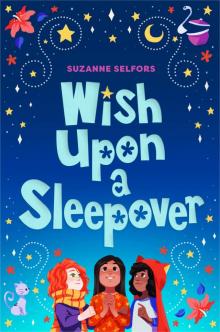 Wish Upon a Sleepover
Wish Upon a Sleepover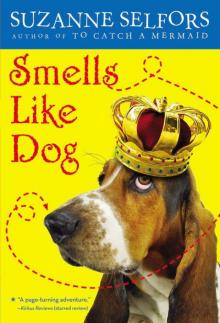 Smells Like Dog
Smells Like Dog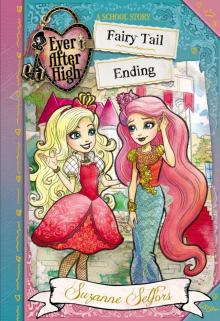 Ever After High
Ever After High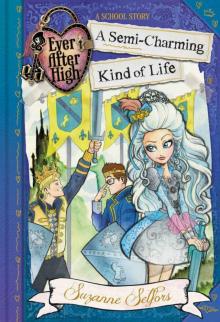 Ever After High: A Semi-Charming Kind of Life
Ever After High: A Semi-Charming Kind of Life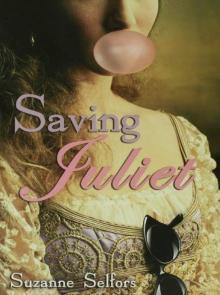 Saving Juliet
Saving Juliet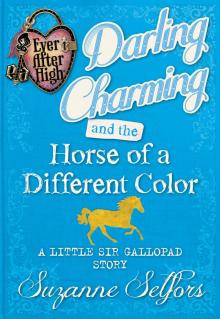 Darling Charming and the Horse of a Different Color
Darling Charming and the Horse of a Different Color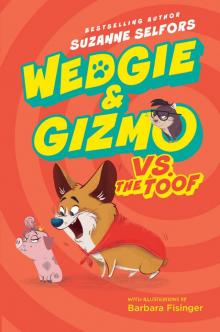 Wedgie & Gizmo vs. the Toof
Wedgie & Gizmo vs. the Toof Spirit Riding Free--The Adventure Begins
Spirit Riding Free--The Adventure Begins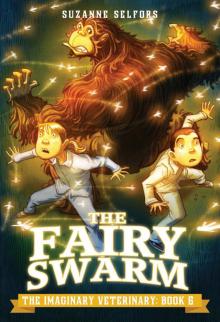 The Fairy Swarm
The Fairy Swarm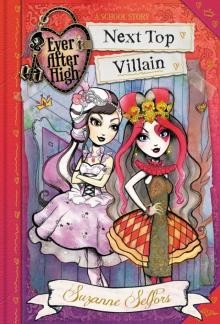 Ever After High: Next Top Villain: A School Story
Ever After High: Next Top Villain: A School Story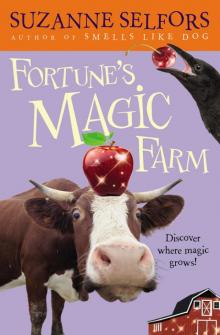 Fortune's Magic Farm
Fortune's Magic Farm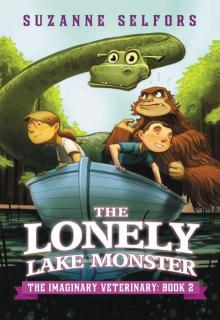 The Lonely Lake Monster
The Lonely Lake Monster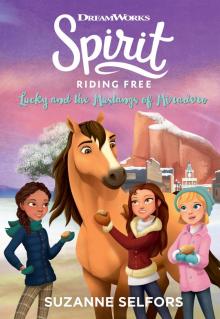 Spirit Riding Free--Lucky and the Mustangs of Miradero
Spirit Riding Free--Lucky and the Mustangs of Miradero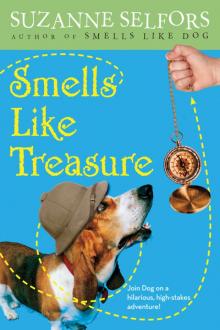 Smells Like Treasure
Smells Like Treasure Mad Love
Mad Love